Lancaster University sees its partnership with a private sector property provider pay dividends as its latest phase of student residences are awarded a BREEAM Excellent rating
Students at Lancaster University are now living in some of the greenest halls of residence in the country thanks to a partnership that promotes eco-friendly construction in the education sector. The buildings are up to 15% cheaper to build; the carbon footprint per student will be 25% less than target CO² emission rates required by building regulations; and, energy saving measures will deliver improvements of up to 20% in consumption of water, electricity and gas on Lancaster’s previous student accommodation.
The university is achieving this by working closely with University Partnerships Programme (UPP), a private sector provider of infrastructure based services to higher education. UPP funds and provides innovative solutions to the development, ownership and operation of university student residential accommodation. Its offerings to UK universities are based on the research of Dr Avi Friedman, professor of architecture and director of the affordable housing programme at McGill University, Montreal, Canada.

This research has been transformed into bespoke accommodation for Lancaster University by The Goddard Wybor Practice, a Leeds-based architect working with UPP. Following discussions with a dedicated working party that included representatives of the Students’ Union, College Principals and University staff, the country’s first eco-residence template for easily constructed sustainable university accommodation was created.
Eco digs
The design template includes two types of residence, townhouses and cluster flats.Each 6m wide by 12m deep townhouse accommodates up to 12 students. There is a large shared kitchen/dining space on the ground floor, while each of the three floors above has four bedrooms and two shower/wc facilities.
The more traditional cluster flat provides accommodation in six en-suite bedrooms with a shared kitchen/dining living space. Each cluster is constructed of rectangular blocks of approximately 24m long and 12m deep, with central staircases serving two flats per floor of four storeys.
The design of these two types of property actively promotes the use of sustainable resources and processes. Prefabrication is a major factor in keeping costs and waste to a minimum. Both the structural timber frames and bathroom pods are built off-site and delivered ready for quick installation and connection. By using timber sourced from sustainable, managed forests for the building’s superstructure, UPP was able to reduce the carbon footprint of the build by 30%.
Wherever possible, materials for the build and decoration are renewable and non-toxic; while high insulation standards and a high degree of air tightness create a very energy-efficient building envelope.
Services play a large part in the efficient operation of any building, and here they have been designed to truly maximise efficiency. Each townhouse and block of flats is equipped with a BMS that constantly monitors the consumption of gas, water and electricity. A heat recovery system operates on the extract ventilation serving the shower/bathrooms, providing warm air into the internal circulation areas; while each room is equipped with a small radiator, controlled by a thermostatic radiator valve and linked to a high efficiency, gas-condensing boiler.
Low energy electrical fittings are used throughout and communal areas have PIR detectors to ensure that lights are switched off when spaces are unoccupied. In the study bedrooms, mini circuit breakers prevent unexpected use of high-wattage devices.
Solar thermal roof panels in the south facing blocks of cluster flats reduce demand on gas-fired boilers in the hot water system and low flow rate fittings have been installed to washbasins and showers, while toilet systems are dual flush. Finally, a sustainable urban drainage solution with on-site retention of surface water discharge has been adopted.
Students in all of the properties will be encouraged to monitor their utility consumption online and incentives will be offered for lower usage.
Student union
This latest phase of works sees a total of 752 new rooms, together with some one- and two-bedroom flats, provided. The Lancaster development is now one of only four student accommodation buildings in the UK to have achieved BREEAM Excellent status. However, the university’s relationship with UPP dates back to 2002. Since that time, the partnership has delivered a total of 3,385 new rooms in three phases. While the first phases of rooms were very energy efficient, environmental issues were not understood as well and the accommodation was not as sustainable.
Mark Swindlehurst, Lancaster University’s director of estate management, said: “This new, eco-friendly accommodation will help us to attract increasing numbers of students from across the UK and internationally. Importantly, it has been designed as an environment that will encourage ‘good habits’ in terms of sustainable living, day-to-day. The design process has been exemplar with students, colleges, the University and UPP working together to design the very best student accommodation. It is designed and built more sustainably: it is cheaper to build than conventional construction methods, resulting in lower rents to students and it will use less energy in operation. We’re proud to be setting this standard for future best practice.”
Clive Crawford, chief executive of UPP, said:“The BREEAM accreditation highlights the work that we have put into making the Eco-Residence a viable template for sustainable student accommodation. These are the homebuyers of tomorrow, so encouraging a greener outlook today will help to benefit everyone going forward.”
UPP has committed over £800m of private finance to the university student residential accommodation sector since 1997 and now has a portfolio of over 16,000 rooms. It plans to invest a further £1bn over the next five years and work is already underway on the next batch of eco-residences at The University of Kent and Leeds Metropolitan.





















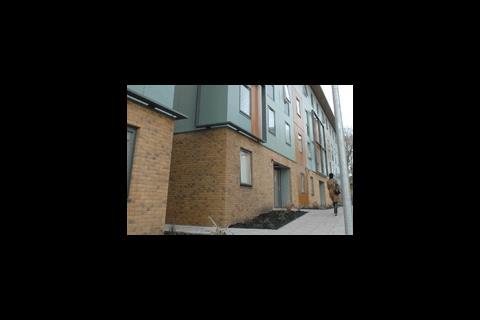
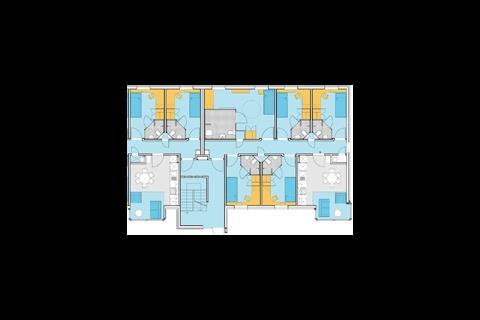
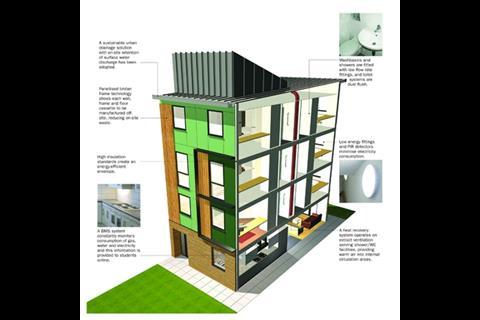
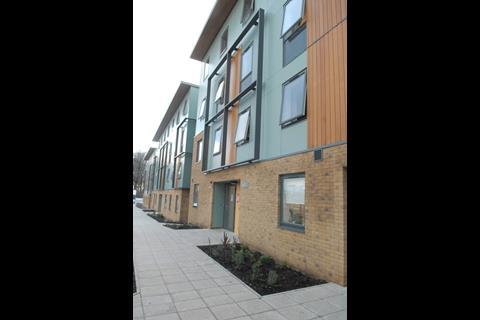
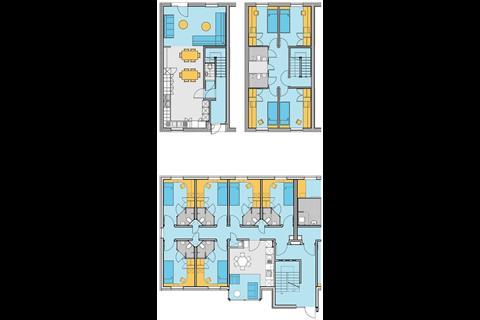
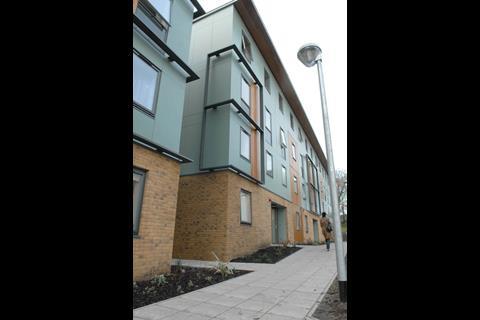






No comments yet